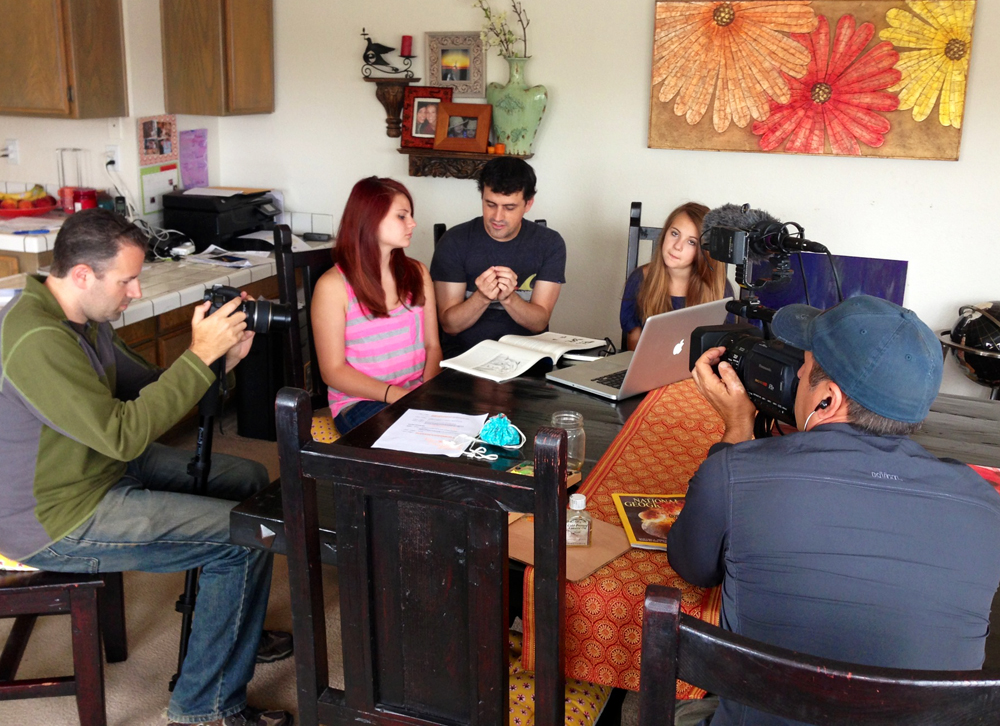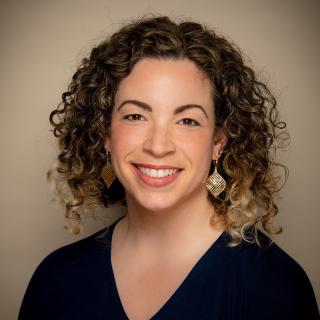 Dustin Woodard is a Seattle-based web consultant and award-winning filmmaker who began working on the documentary Class Dismissed in early 2011. He's also a father, coach and an innovators instructor at an alt-ed school. Earlier this year he launched the Kid Film Fest with his son. I talked with Woodard about the thought-provoking movie, which explores homeschooling and unschooling and profiles a California family making major changes to the education plan for their two daughters. Class Dismissed makes its world premiere next week in Los Angeles and screens in the Puget Sound region later this month (see box below for details).
Dustin Woodard is a Seattle-based web consultant and award-winning filmmaker who began working on the documentary Class Dismissed in early 2011. He's also a father, coach and an innovators instructor at an alt-ed school. Earlier this year he launched the Kid Film Fest with his son. I talked with Woodard about the thought-provoking movie, which explores homeschooling and unschooling and profiles a California family making major changes to the education plan for their two daughters. Class Dismissed makes its world premiere next week in Los Angeles and screens in the Puget Sound region later this month (see box below for details).
Can you tell us a bit about your own schooling?
I went to public school in Lake Stevens, Wash., and my wife went to private school in Eastern Washington. Hence the debate and research into what the best options for our kids would be. Both my wife and I had positive school experiences and were model students with great grades and attendance. After exploring education options for my son as he got closer to compulsory school age, we were blown away with how wrong we were about homeschooling. We had the mental image of religious, anti-government, secluded, school-at-home families, which turns out to be a very inaccurate portrayal of modern homeschoolers.
Looking back at my school experiences, I wonder how much more engaged I would have been adopting modern child-led education strategies we employ, and how I might have pursued passions that were put on the back burner until I was in my 30s.
Why did you decide to make this film?
When I was a young, I wanted to make movies but never pursued the interest because I focused on establishing a more promising career through studying business and finance in college. Once I graduated, my career veered into becoming a self-taught search engine expert. On a whim, I studied how to write movies then went ahead and hired a crew and made an award-winning 30-minute fictional narrative short film. After that success, I decided I wanted to make a feature-length documentary, which was around the same time we started the education journey with my son. I felt I had discovered a secret life-changing way to educate our children that had to be told. My perception and the public's perception of homeschooling is so far off from reality, I felt obligated to shine a spotlight on what homeschoolers are actually doing.
While preparing to make the documentary, I started making clever commercials for brands like Lego, Hot Wheels, Dell and Sony which funded my equipment and gave me much-needed camera experience. Then I saw a video teaser made on the same topic by a guy whose daughter was the same age as my son. Instead of competing, I called up Jeremy Stuart (the director of Class Dismissed) and we joined forces to make this film.
"My perception and the public's perception of homeschooling is so far off from reality, I felt obligated to shine a spotlight on what homeschoolers are actually doing."
How did you select the California family featured in the film? What did they represent to you? Was it important that you feature a family in the process of making the decision about how to school their children vs., say, a family already homeschooling or unschooling?
From the beginning we knew we wanted to follow a family making the decision to homeschool because it takes the viewer along with them on the journey. Had we stuck with talking heads of experts and random homeschool children, we would have finished the documentary over two years ago, but that doesn't make a very engaging film. We put out a casting call and had over 100 families contact us. This particular family was referred to us by another family. We felt they represented the typical middle-class family well, had kids old enough be be comfortable in front of the camera, and were in a location that was easy for both of us to travel to (Jeremy is in San Francisco & I'm in Seattle). Our unexpected surprise is that they were pulling their girls out of one of the highest-rated schools in Los Angeles.
The family doesn't seem to represent the typical kind of family contemplating or pursuing homeschooling or unschooling (at least in my preconceived notion) ... removing the religiously motivated families from the equation, I have the impression that many families who go outside the traditional education structure in the U.S. do so because of a pre-existing value system or belief framework around education, learning, childhood, and personal agency. Did you select a family that almost "accidentally" fell into homeschooling — because of negative classroom experiences and/or individual needs of the children — for a reason? Do you hope to send the message that all families can and should, right now, reconsider their kids' education?
We surveyed nearly 5,500 homeschool families and found that religion was rarely the primary reason for homeschooling. There was far more interest in building a custom education, schedule flexibility, the ability to spend more time with their kids, and a desire to provide a modern non-traditional approach to education. Many also complained about the quality of their schools. Over a thousand of the respondents were current or former teachers who now homeschool their kids.
I do believe most families fall into or discover homeschooling without considering it in the beginning. That was my story and the story of Jeremy, who assumed he'd enroll his daughter in a public school until attending a conference and meeting actual homeschool kids. He said, "If this is how they turn out, sign me up!" In fact, the few people I've met that knew from the beginning they would homeschool were adults who were homeschooled themselves.
How do you think the conversation around homeschooling and unschooling has changed in the past few years in this country? Has the rise in standardized testing and push for common standards impacted parents' perception and kids' experience of traditional school?
In 1999 only 1.7 percent of kids were homeschooled, but that doubled to over 3.4 percent in 2012. It's difficult to measure, but some estimate there are over 3 million homeschooled kids in America. I expect this number to grow even faster due to the negative effects of the recent focus on testing. Educators tell us No Child Left Behind has been very damaging and Common Core may be even worse. More and more schools are cutting art programs, recess and other classes to concentrate more time on tests that haven't been shown to help produce better students or citizens. Research has shown that art and recess actually raise math scores.
The family featured had the luxury of one stay-at-home parent and another flexible parent, whose job welcomed the kids' intrusion and involvement. They also, though some financial hardships were mentioned, seem far above the U.S. household median income and lived in a pricey region. How do economics and class play into the homeschool choice? How could a more typical, or economically disadvantaged family, make this choice?
Actually, it was one stay-at-home parent who did have some part-time work (Rachel) and a stepdad (Todd) who worked more than full-time (full-time job plus multiple side jobs). I'd say they represent the American middle class well; they certainly weren't well off. Their house was small and rented, and they only had one vehicle.
We interviewed a broad spectrum of families from single, minority working moms to wealthy families. Homeschooling doesn't have to be expensive, nor time-consuming. Sure you could make it super expensive by signing your kids up for tons of classes or traveling extensively, but between libraries, the web, grandparents, internships, and homeschool co-ops and organizations, you can provide a very rich homeschool experience. More and more public schools are creating parent partnership programs that provide free enrichment and core classes where kids choose their own classes as if they were in college. I now teach two innovation classes once a week at one of these public schools.
What message do you think viewers are left with?
We're most excited for the general population to realize that homeschooling is an option they should consider. Most education documentaries are focused on fixing schools instead of exploring what is working outside of the school system. Many people don't realize that school as we know it has only been around for 100 years and may not be the best option for their child or their family.
I think the homeschool-curious will get an opportunity to see if homeschooling is a valid option for them. Homeschool skeptics will have a fresher, more realistic view of homeschooling. Current homeschoolers will enjoy familiar moments and will have refreshed enthusiasm and confidence about what they are doing.
Watch a trailer of the film:




